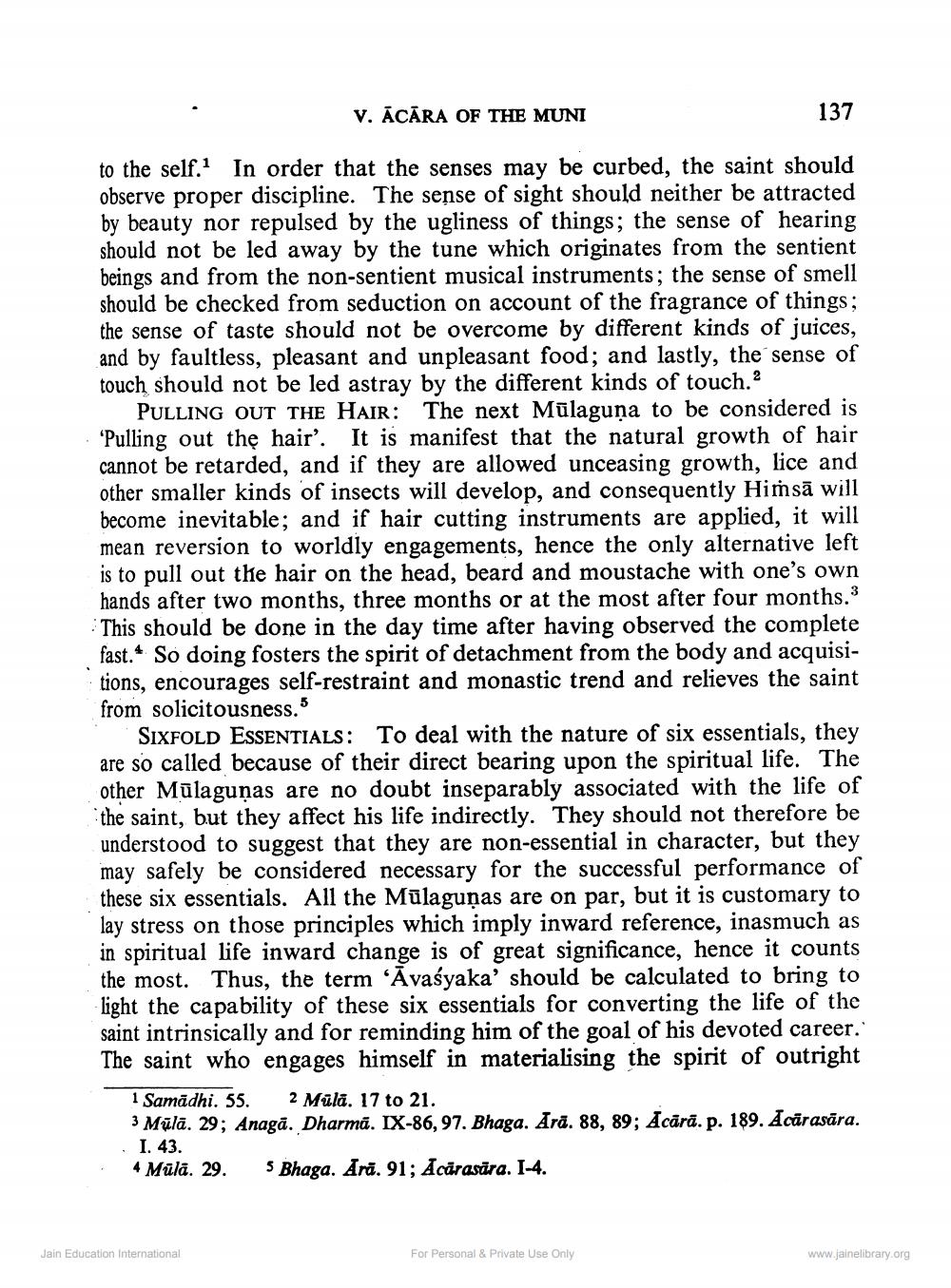________________
V. ĀCĀRA OF THE MUNI
137
to the self. In order that the senses may be curbed, the saint should observe proper discipline. The sense of sight should neither be attracted by beauty nor repulsed by the ugliness of things; the sense of hearing should not be led away by the tune which originates from the beings and from the non-sentient musical instruments; the sense of smell should be checked from seduction on account of the fragrance of things; the sense of taste should not be overcome by different kinds of juices,
aultless, pleasant and unpleasant food; and lastly, the sense of touch should not be led astray by the different kinds of touch.?
PULLING OUT THE HAIR: The next Mülaguna to be considered is 'Pulling out the hair'. It is manifest that the natural growth of hair cannot be retarded, and if they are allowed unceasing growth, lice and other smaller kinds of insects will develop, and consequently Himsā will become inevitable; and if hair cutting instruments are applied, it will mean reversion to worldly engagements, hence the only alternative left is to pull out the hair on the head, beard and moustache with one's own hands after two months, three months or at the most after four months.3 This should be done in the day time after having observed the complete fast. So doing fosters the spirit of detachment from the body and acquisitions, encourages self-restraint and monastic trend and relieves the saint from solicitousness."
SIXFOLD ESSENTIALS: To deal with the nature of six essentials, they are so called because of their direct bearing upon the spiritual life. The other Mūlaguņas are no doubt inseparably associated with the life of the saint, but they affect his life indirectly. They should not therefore be understood to suggest that they are non-essential in character, but they may safely be considered necessary for the successful performance of these six essentials. All the Mūlaguņas are on par, but it is customary to lay stress on those principles which imply inward reference, inasmuch as in spiritual life inward change is of great significance, hence it counts the most. Thus, the term 'Āvaśyaka' should be calculated to bring to light the capability of these six essentials for converting the life of the saint intrinsically and for reminding him of the goal of his devoted career. The saint who engages himself in materialising the spirit of outright
1 Samādhi. 55. 2 Mülā. 17 to 21. 3 Mūlā. 29; Anagā. Dharmā. IX-86, 97. Bhaga. Arā. 88, 89; Ācārā. p. 189. Acārasāra. · I. 43. 4 Mülā. 29. 5 Bhaga. Arā. 91; Ācārasära. 1-4.
Jain Education International
For Personal & Private Use Only
www.jainelibrary.org




